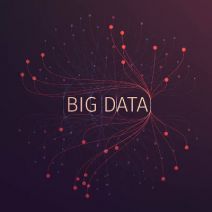With the digitalization of the modern business happening rather rapidly, many organizations still don’t really understand the major benefits that come with it. These shifts give the average business nearly twice the amount of data to manage (and to use). If you have the feeling that your business is lagging behind in this area, we will describe what parts of business you can improve by utilizing your organization’s data.
Network Synergy Blog
Out of all the technologies that have been introduced into the mainstream over the last few years, artificial intelligence—or AI—leads the pack in terms of innovation. Far from the science fiction of autonomous machines bent on the extinction of humanity, AI is now found in many examples of beneficial software. Let’s consider some ways that businesses can now use AI to their considerable advantage.
Traditionally, small businesses don’t use their data in the same way as larger companies. This is largely because they may not think they have a lot of data. Well, I’m here to tell you that even small businesses can have big data. Let’s go over three ways small business can use their data to their benefit.
 Managing your businesses technology is important because your operations rely heavily on efficient access to information. One advantage that secure and reliable IT provides is the ability to remain competitive, as the slightest advantage could mean a world of difference in your given market. One new IT trend is the analysis of big data. If it is leveraged properly, you could help your business get the leg up on local competition.
Managing your businesses technology is important because your operations rely heavily on efficient access to information. One advantage that secure and reliable IT provides is the ability to remain competitive, as the slightest advantage could mean a world of difference in your given market. One new IT trend is the analysis of big data. If it is leveraged properly, you could help your business get the leg up on local competition.
 In October of 2016, the Federal Communications Commission designed a set of rules known as the Broadband Consumer Privacy Proposal. These rules had intended to flip the status quo and require Internet service providers (ISPs) to gain their customers’ permission before they harvested their browsing histories to sell to advertisers. This proposal is now moot with the establishment of a new law that passed through Congress and was signed by President Trump in April 2017.
In October of 2016, the Federal Communications Commission designed a set of rules known as the Broadband Consumer Privacy Proposal. These rules had intended to flip the status quo and require Internet service providers (ISPs) to gain their customers’ permission before they harvested their browsing histories to sell to advertisers. This proposal is now moot with the establishment of a new law that passed through Congress and was signed by President Trump in April 2017.
 There are those in the technology world that argue that professional sports are of marginal importance. Grown men and women, getting paid vast sums of money by fat-cats that make the average successful business owner look like a pauper, to play games that millions of children play everyday. However, according to a poll taken by CNN/USA Today/Gallup, nearly two-thirds of American respondents admitted to being sports fans. In other nations around the world, the sports that fans follow may differ, but percentages are similar to, or exceed those in the U.S.
There are those in the technology world that argue that professional sports are of marginal importance. Grown men and women, getting paid vast sums of money by fat-cats that make the average successful business owner look like a pauper, to play games that millions of children play everyday. However, according to a poll taken by CNN/USA Today/Gallup, nearly two-thirds of American respondents admitted to being sports fans. In other nations around the world, the sports that fans follow may differ, but percentages are similar to, or exceed those in the U.S.
 The incorporation of mobile devices into day-to-day life has changed the culture significantly. In fact, when Apple introduced “iPhone” less than a decade ago, Steve Jobs famously said, “It’s like your life in your pocket.” Now, over eight years on from the launch of the first iPhone, it’s hard to remember what life was like before you had a full-function information system in the palm of your hand. We’ve come to rely heavily on these devices, driving mobile profits up and creating a market that didn’t have any substance only a short time ago.
The incorporation of mobile devices into day-to-day life has changed the culture significantly. In fact, when Apple introduced “iPhone” less than a decade ago, Steve Jobs famously said, “It’s like your life in your pocket.” Now, over eight years on from the launch of the first iPhone, it’s hard to remember what life was like before you had a full-function information system in the palm of your hand. We’ve come to rely heavily on these devices, driving mobile profits up and creating a market that didn’t have any substance only a short time ago.
 Big data analytics might be changing the way businesses look at data, but how much can be changed without a deeper understanding of what causes these trends? Your business model has everything to gain from understanding why and how big data trends come to be. In essence, understanding how the trends behind big data work is arguably more important than the statistics of big data itself.
Big data analytics might be changing the way businesses look at data, but how much can be changed without a deeper understanding of what causes these trends? Your business model has everything to gain from understanding why and how big data trends come to be. In essence, understanding how the trends behind big data work is arguably more important than the statistics of big data itself.
 Today’s technology has accomplished a ton of fascinating things, but none are more important for the average business than big data analytics. When considering the incredibly competitive nature of the business environment, anything that gives your company an edge is a welcome addition to your strategy, and it’s more important than ever before to heed this call to action.
Today’s technology has accomplished a ton of fascinating things, but none are more important for the average business than big data analytics. When considering the incredibly competitive nature of the business environment, anything that gives your company an edge is a welcome addition to your strategy, and it’s more important than ever before to heed this call to action.
 Most of the Internet's data is stored in data centers. Logistically, data centers are a great solution to store ridiculous amounts of data. However, from an environmental perspective, data centers may be doing more harm than good. This, according to a new report by the National Resources Defense Council.
Most of the Internet's data is stored in data centers. Logistically, data centers are a great solution to store ridiculous amounts of data. However, from an environmental perspective, data centers may be doing more harm than good. This, according to a new report by the National Resources Defense Council.
 Civilization has passed through various ages, like the Stone Age, the Ice Age, Bronze Age, and so on. And now, we're progressing through another one - the Data Age. In fact, 90 percent of the world's data was created in 2013. With each new device and system comes an incredible amount of data that must be processed, stored, and catalogued. This is Big Data, and the way that your business works with this information will determine the success of your business in the Data Age.
Civilization has passed through various ages, like the Stone Age, the Ice Age, Bronze Age, and so on. And now, we're progressing through another one - the Data Age. In fact, 90 percent of the world's data was created in 2013. With each new device and system comes an incredible amount of data that must be processed, stored, and catalogued. This is Big Data, and the way that your business works with this information will determine the success of your business in the Data Age.





